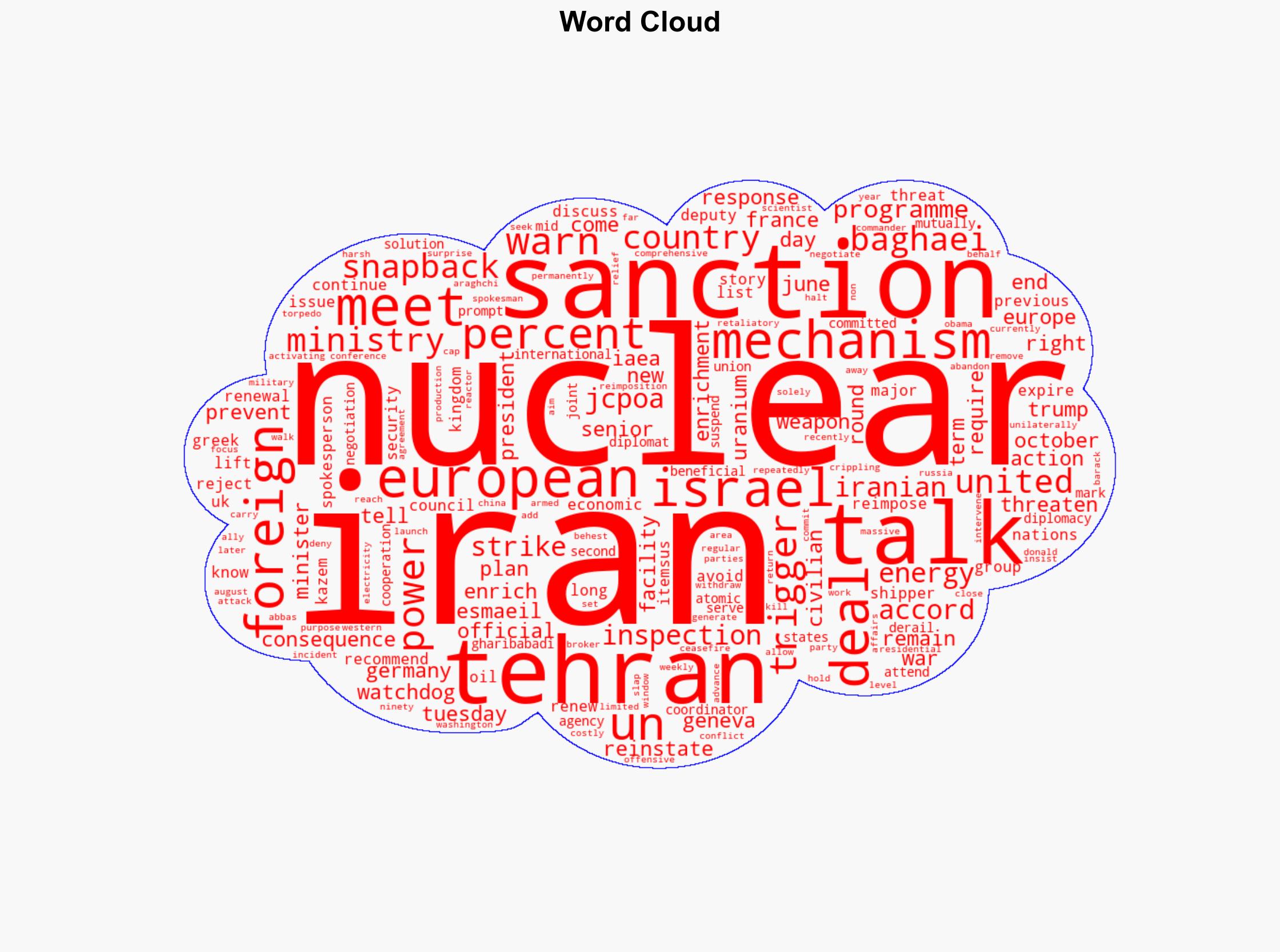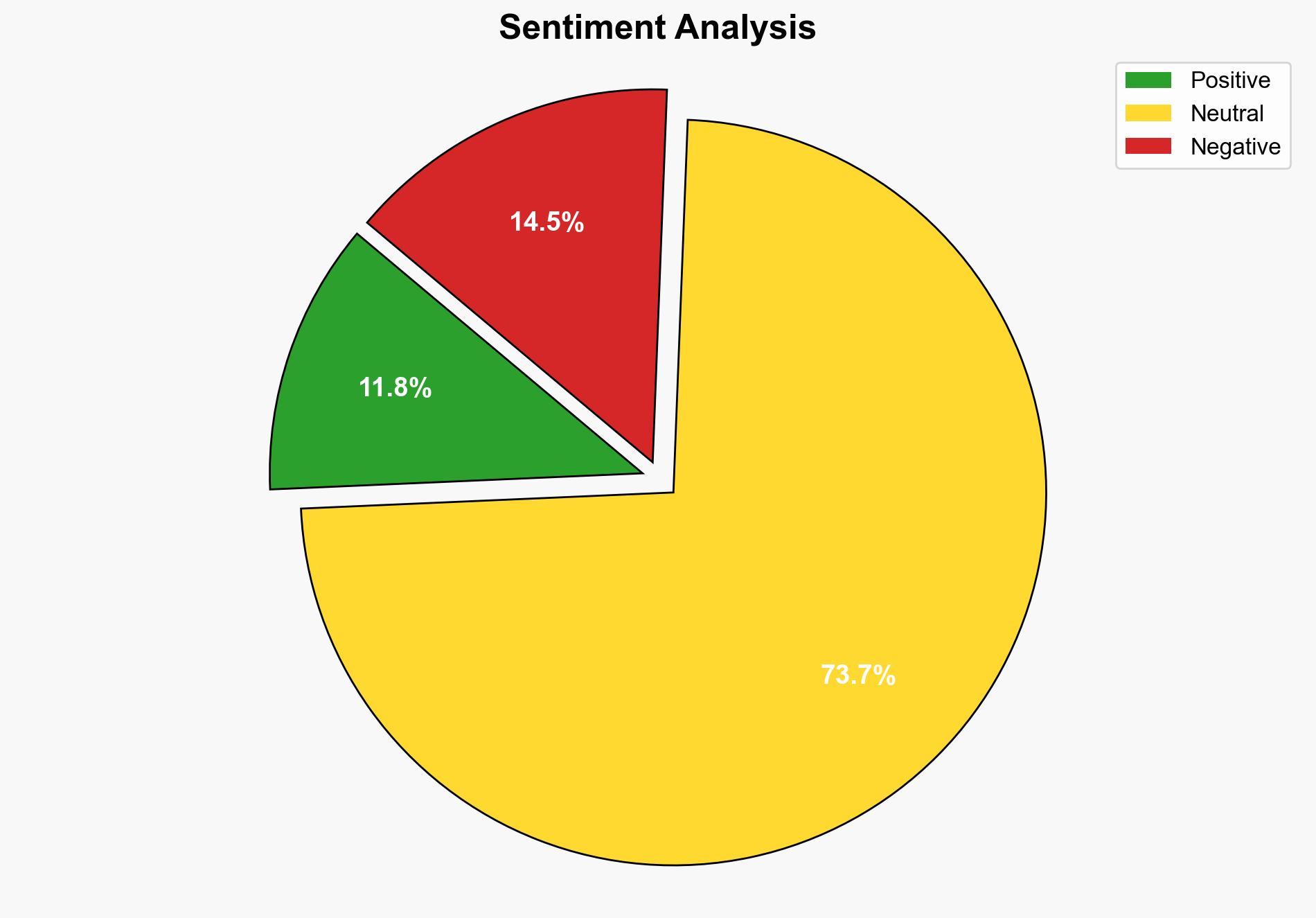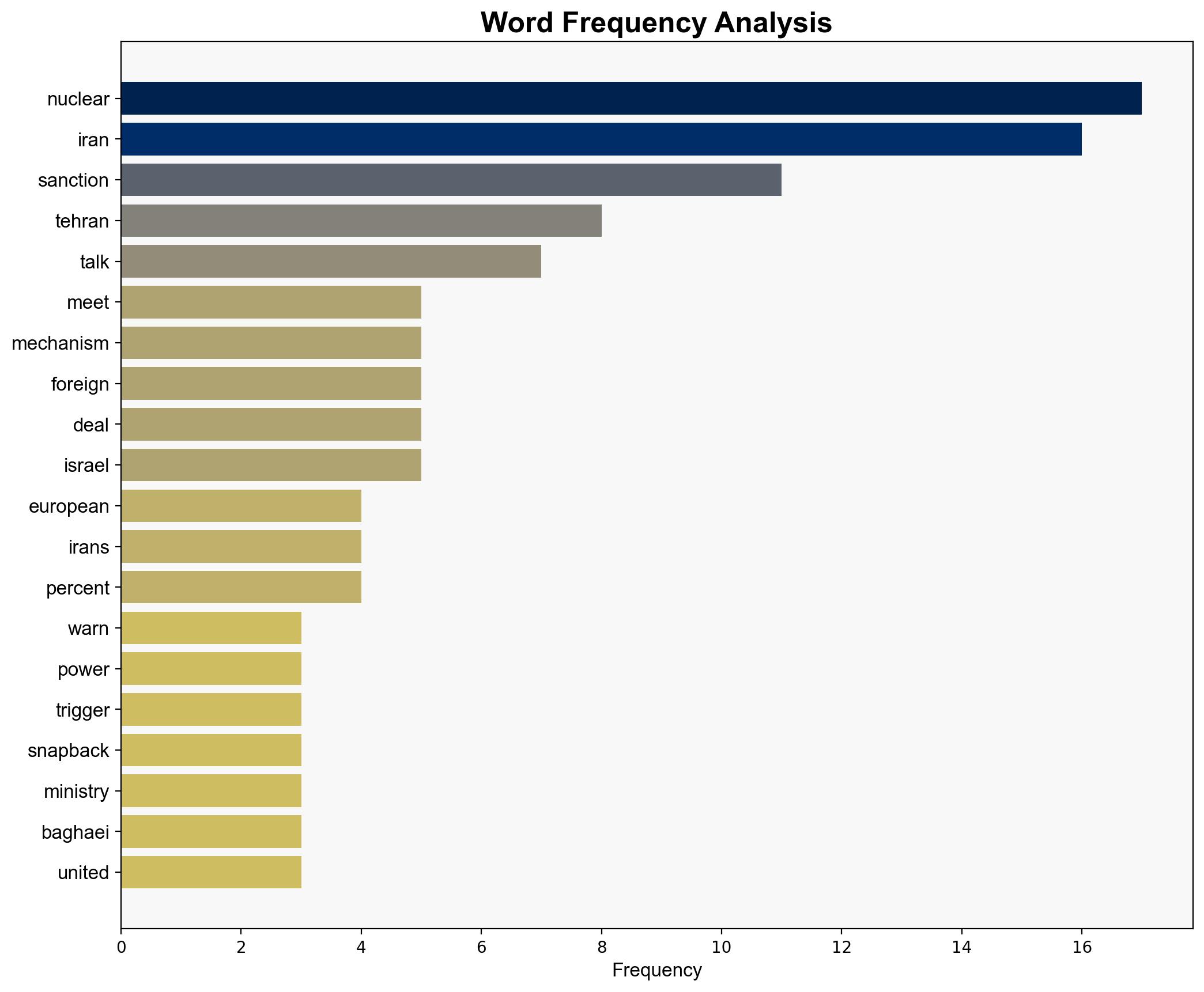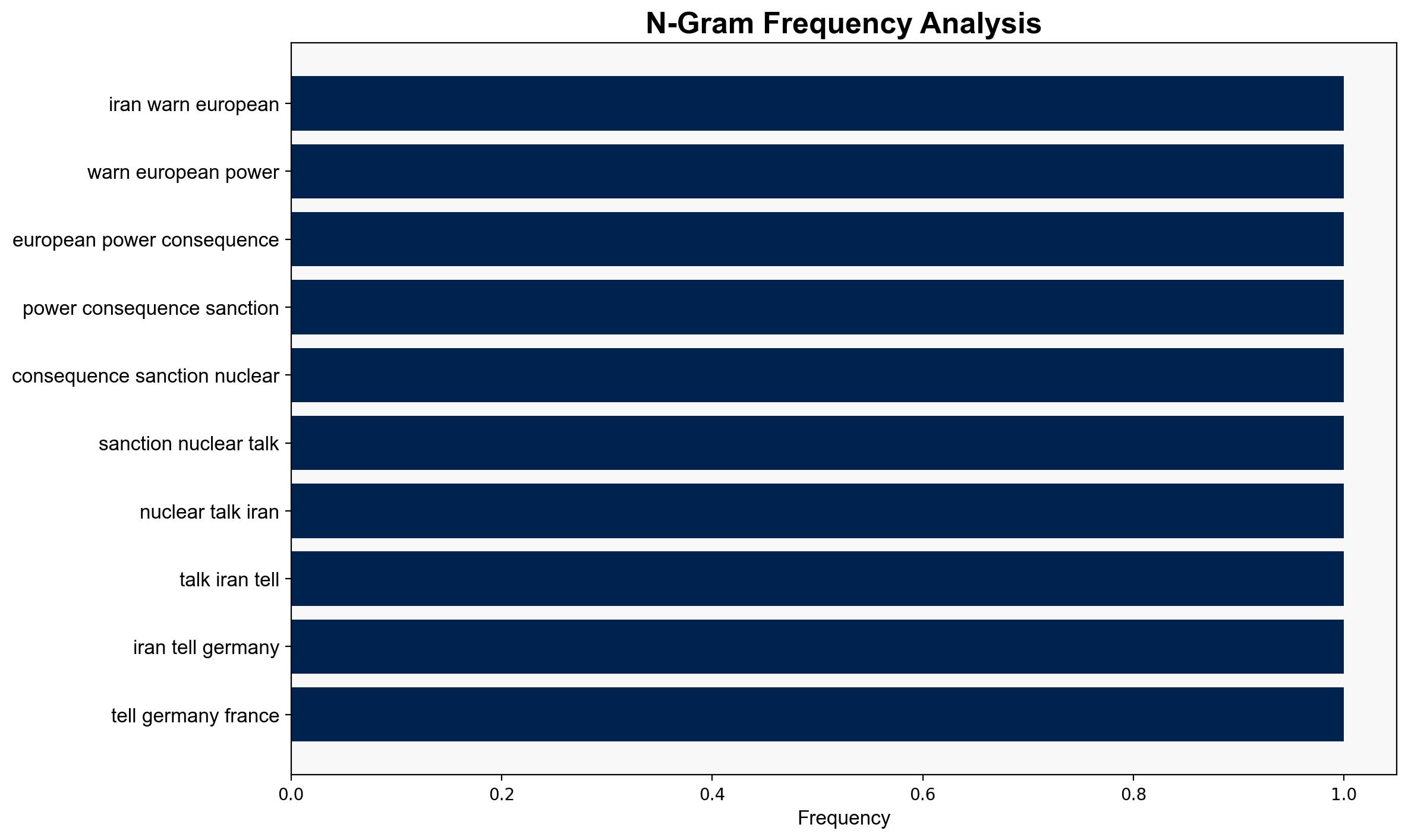Iran European powers hold nuclear talks in Geneva amid sanctions threat – Al Jazeera English
Published on: 2025-08-26
Intelligence Report: Iran European powers hold nuclear talks in Geneva amid sanctions threat – Al Jazeera English
1. BLUF (Bottom Line Up Front)
The most supported hypothesis is that Iran is using diplomatic negotiations as a strategic delay tactic to avoid sanctions while advancing its nuclear capabilities. Confidence in this assessment is moderate, given the complexity of international negotiations and potential for undisclosed agreements. Recommended action includes increased intelligence gathering on Iran’s nuclear activities and diplomatic engagement with European powers to maintain a unified stance.
2. Competing Hypotheses
1. **Iran is genuinely committed to reaching a diplomatic solution**: This hypothesis suggests that Iran is negotiating in good faith to avoid sanctions and comply with international nuclear agreements.
2. **Iran is using negotiations as a delay tactic**: This alternative posits that Iran is engaging in talks to buy time to advance its nuclear program while avoiding immediate sanctions.
Structured Analytic Technique: Using Analysis of Competing Hypotheses (ACH), the second hypothesis is better supported. Iran’s history of nuclear development, coupled with recent threats to halt inspections, suggests a strategic pattern of delay and advancement.
3. Key Assumptions and Red Flags
– **Assumptions**: It is assumed that Iran’s primary motive is economic relief rather than strategic nuclear advancement. This may overlook Iran’s potential long-term strategic goals.
– **Red Flags**: Iran’s threat to halt inspections and past behavior of non-compliance with nuclear agreements are significant indicators of potential deception.
– **Blind Spots**: Lack of transparency in Iran’s internal decision-making processes and potential undisclosed agreements with other nations, such as China and Russia.
4. Implications and Strategic Risks
– **Geopolitical**: A breakdown in negotiations could lead to reinstated sanctions, increasing regional tensions and potentially destabilizing the Middle East.
– **Economic**: Reimposed sanctions could further strain Iran’s economy, potentially leading to internal unrest.
– **Military**: Escalation of military actions, particularly involving Israel, could lead to broader conflict.
– **Psychological**: Continued uncertainty may erode trust between negotiating parties, complicating future diplomatic efforts.
5. Recommendations and Outlook
- Enhance intelligence operations focused on Iran’s nuclear facilities to detect any covert advancements.
- Strengthen diplomatic channels with European powers to ensure a unified approach to negotiations.
- Scenario Projections:
– **Best Case**: Successful diplomatic resolution with Iran agreeing to enhanced inspections and compliance.
– **Worst Case**: Breakdown of talks leading to military conflict and regional destabilization.
– **Most Likely**: Continued negotiations with intermittent threats and minor concessions from Iran.
6. Key Individuals and Entities
– Esmaeil Baghaei
– Kazem Gharibabadi
– Abbas Araghchi
7. Thematic Tags
national security threats, nuclear proliferation, diplomatic negotiations, Middle East stability





